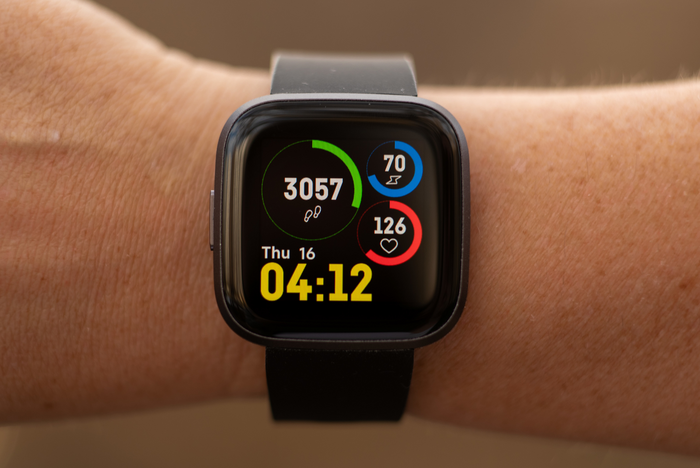Almost half of American adults don’t meet recommended weekly physical activity levels, but new research from Brigham Young University suggests a surprisingly simple way to help increase exercise time: just strap on an activity monitor.

Credit: Jaren Wilkey/BYU Photo
Almost half of American adults don’t meet recommended weekly physical activity levels, but new research from Brigham Young University suggests a surprisingly simple way to help increase exercise time: just strap on an activity monitor.
The study found that those wearing a pedometer walked an average of 318 more steps per day than those without a tracker, even if the walkers had no specific fitness goals or incentives, and even when they couldn’t see the step count the pedometer kept.
“Humans are hardwired to respond to what is being measured because if it’s being measured, it feels like it matters,” said BYU Marriott School of Business professor Bill Tayler, an author of the paper. “When people go get an Apple Watch or a Fitbit, of course it’s going to affect their behavior; they obtained the device with the goal of walking more. But it’s helpful for individuals to know that even without trying, just being aware that something is tracking your steps increases your activity.”
Since modest increases in physical activity have cumulative benefits, the study’s findings may also be useful to those in healthcare or businesses that have a vested interest in public health.
“If I were an insurance executive, I’d be interested to know that you can hand out basic fitness trackers to people, and as long as they put them on, they’re going to walk more,” Tayler said.
To determine how being monitored affected people’s step counts, the research team came up with an ingenious experiment design.
“We wanted to find out, absent goals and incentives, does simply tracking fitness change behavior? Until this study, no one had convincingly shown what we’ve shown — from an academic point of view, it turns out this is a super hard question to answer,” Tayler said.
That’s because to prove that people walk more with a pedometer, researchers need to know either 1) how much people walk before they put on the pedometer or 2) how much they walk compared to another group of randomly selected people who are not wearing a pedometer — baseline measurements that both require a pedometer.
The team’s workaround was to use the iPhone’s default step tracking feature, which few people were aware existed when the researchers began gathering data. “It was a bit of a sneaky way to get the data we needed,” Tayler said.
At the start of the study, the team asked all 90 participants’ permission to pull information generally from their phones, without telling them that their step counts from the weeks prior were being recorded. This provided the elusive baseline measure of how much participants walked when they weren’t being actively monitored.
The team then gave some of the participants a pedometer without a display, while keeping the rest of the participants in the dark about the study’s purpose. After another two weeks, the researchers again accessed step count data from the subjects’ iPhones and saw that wearing a pedometer was associated with higher step counts.
“Measurement and tracking precede improvement,” said BYU graduate Christian Tadje, who spearheaded the research as a student working with the Healthcare Industry Research Collaborative. “If you want something to improve — for example, a key performance indicator in the workplace or a personal health goal — our study shows that you should consider tracking your progress.”
The paper was published in the American Journal of Health Behavior and additionally coauthored by BYU professors James LeCheminant and Joe Price.
Journal
American Journal of Health Behavior
DOI
10.5993/AJHB.46.4.1
Method of Research
Experimental study
Subject of Research
People
Article Title
The Effect of Wearable Activity Monitor Presence on Step Counts
Article Publication Date
19-Sep-2022
COI Statement
No conflicts of interest.




